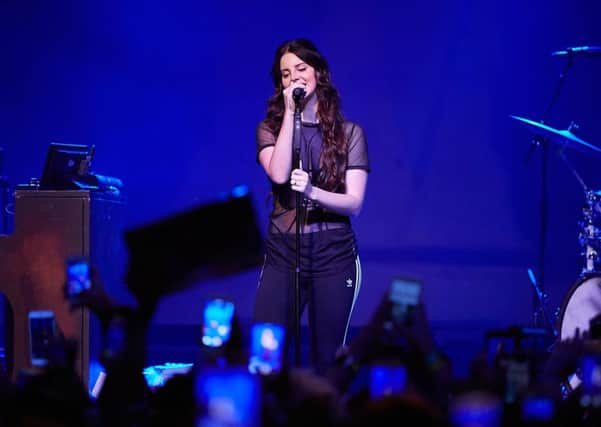Music review: Lana Del Rey


Hydro, Glasgow ***
Reluctant performer though she is, Del Rey is undoubtedly a pop star – and an interesting one at that, with a distinctive aesthetic – so her every understated utterance and wafting dance move was greeted with screams way beyond any intended import.
This show was a home- coming of sorts. Del Rey lived quietly in Glasgow for a while at the height of her fame and proclaimed its special place in her heart, even though there was no evidence of a particular connection, either in her music or her diffident delivery.
Advertisement
Hide AdAdvertisement
Hide AdDel Rey does not do big gestures. Despite the overload of escapist imagery in her music, her current show is a relatively unadorned affair, just her stage surname hung in neon above the stage, two dancers who she occasionally joined in some low-energy movement, such as the languorous slow dance of Cherry, and little else to compensate for her lack of va-va-voom.
Her voice alone could not carry her in such a large space, lovely though her soft, soaring soprano sounded on Shades of Cool. Her earlier material, including the swooning Blue Jeans, romantic fatalism of Born To Die, seductive melody of her breakthrough song Video Games and the relative drama of Summertime Sadness, carried more weight than some of the more impressionistic numbers in the set though the luminous piano ballad Change stood out for its lyrical purpose and the light, carefree Ride, accompanied by footage of big prairie skies and bikers on the highway, was a liberated joy.
She concluded her set, barely an hour after taking the stage, with Off to the Races which allowed for some meatier rock guitar action.
While Del Rey descended from the stage to commune with the front rows and pose for selfies with her fans, the band kept the music simmering before finally letting it boil over as Del Rey headed for the sanctuary of backstage.
FIONA SHEPHERD